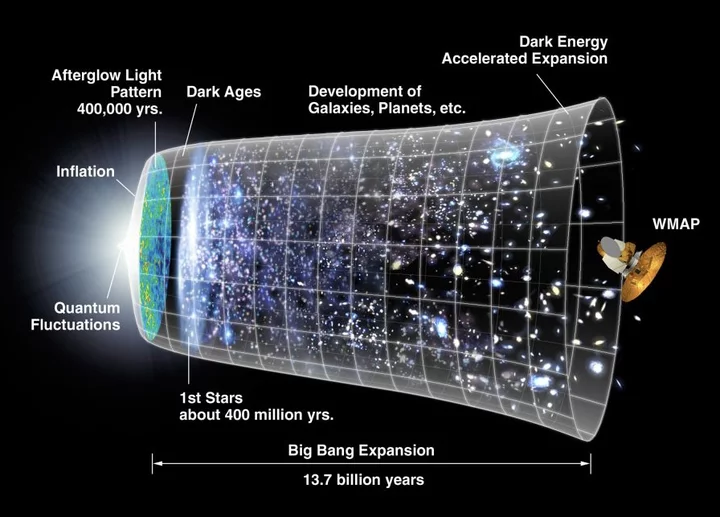If the universe is “fine tuned,” that is, if the constants of nature are so perfectly tuned as to allow life here on Earth, then it behooves us to look for a cause. That’s a big “if,” as I’ll get to in a minute, but let’s first allow that it really is fine tuned.
For instance, if the cosmological constant, a measure of the expansion rate of the universe, was slightly larger than what we now measure, galaxies (and therefore stars and planets) wouldn’t form, i.e. no us. The electromagnetic force — which dictates how atoms work, is dictated by the fine-structure constant; change it by a tad, and there goes matter: again, no us. And on and on, through another 24 constants of nature, all seemingly precisely tuned to allow us to be here, not to mention (by the way!) the rest of the universe as we observe it.
The God solution is that she/he/it fixed these constants just so at the time of the Big Bang … and here we are, nearly 14 billion years later. Sounds a bit iffy — what is she/he/it got one of the constants slightly wrong? (And anyway, who or what fine-tuned God?) The problem with the God solution is that it doesn’t go anywhere. Any questions can be answered by, “God did it,” and there goes your curiosity about, well, anything. That is, the God solution is ascientific: science has nothing to say about it. Then there’s…
The multiverse solution. If there are zillions of universes — perhaps an infinity of them — all with different constants, you’d naively expect that one of them (at least) would have the constants that we find in our universe. The multiverse wasn’t forced on us by fine tuning, by the way, but as the logical outcome of the inflationary model of the early universe. The idea is that it went through a short period of unimaginably rapid expansion to give us not only the universe we now see, i.e. our universe, but it would have spawned other universes, like a non-stop bubble machine.
Nearly 14 billion years of the universe expanding, with a period of very rapid expansion — inflation — on the left. Most current theories predict that ours would be one of an infinite number of universes — a multiverse — spawned by inflation. WMAP = the Wilkinson Microwave Anisotropy Probe, a spacecraft that operated from 2001 to 2010, measuring temperature differences across the sky resulting from the aftermath of the Big Bang. (NASA)
Curiously, these two solutions, God and multiverse, have this in common: they’re both untestable — articles of faith, if you like — and therefore ascientific. Science, which is essentially a process to test hypotheses (the empirical method) has nothing to say about either of them.
The third response, which happens to be the one I’m partial to, is to ask, “How would we know if the universe is fine tuned or not?” Sure, it may look that way because of our expectations, but how do we know what to expect? We have no other universes for comparison. With a sample size of only one, we can’t say anything about the likelihood or unlikelihood of those 26 constants of nature having the values they have.
Or, to put it another way, “What fine tuning?”

CLICK TO MANAGE